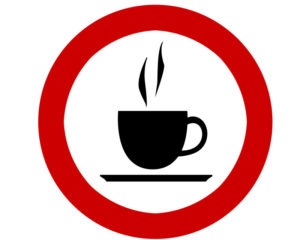In a previous post, we examined some of the basics of a product liability lawsuit using the story of “OP,” a one-year-old girl who was severely burned when a cup of instant soup containing boiling liquid and manufactured by Maruchan, Inc. was tipped and spilled on the girl. A recent court filing in the case by the girl’s mother (who had filed the lawsuit on the girl’s behalf) sought to have the child’s father added as a defendant in the case. Even though the father is not alleged to be directly responsible for causing OP’s injuries – he was not the one who tipped the soup cup and spilled it on her – the girl’s mother is fighting for him to be added to the case nonetheless. Why would she be fighting so hard for this? The answer has to do with jurisdiction (the second lesson this case can teach personal injury plaintiffs).
What is Jurisdiction?
Generally speaking, jurisdiction refers to a court’s ability to hear a particular case before it and render a judgment that is legally binding and enforceable on each of the parties. In general, a court cannot act or address a case if it lacks jurisdiction over the subject matter of the dispute (the type of case) or personal jurisdiction (power over the parties to the dispute).
In federal court where this case is pending, jurisdiction generally requires one of two things: either that a question of federal law exist that is central to the dispute, or that diverse citizens are litigating a controversy wherein the damages are alleged to be in excess of $75,000. “Diversity of citizenship” means that every plaintiff must be from a different state or country as the defendants at the time the lawsuit is filed. Under the diversity of citizenship laws, if one plaintiff is from the same state as any one defendant in the suit then the federal courts cannot exercise jurisdiction over the case.
Jurisdiction is Likely Why the Mother Seeks to Add the Father
The mother may be trying to get the product liability case removed from federal court and sent to North Carolina state courts by attempting to add the father as a defendant. If the mother’s actions were successful and the father was determined to be a resident of North Carolina at the time the lawsuit was filed, the federal courts could not exercise jurisdiction over the case.
Why Jurisdiction Matters to You
It is important that your personal injury case be filed in an appropriate forum and be heard by a court with jurisdiction to decide your case. You and/or your South Carolina personal injury attorney may be more experienced practicing in one type of court over another, or one court may be more sympathetic to your type of claim than another. You should discuss your choice of venue (i.e., where your case should be filed) with your personal injury attorney. (Note that if you do decide to file a lawsuit in federal court, you must either proceed pro se or be represented by an attorney who is admitted to practice before the federal courts.)
David R. Price, Jr. is available to help individuals in South Carolina who have been injured because of a defective product or because of the negligence or careless actions of another. Contact him today for assistance by calling (864) 271-2636 or completing this online form.

David Price is a Personal Injury, Civil Litigation, Collections, and Criminal Defense Attorney who practices in Greenville, SC. He graduated from the University of Georgia School of Law, and has been practicing law for 12 years. David Price believes in helping those who have been injured. Learn more about his experience by clicking here.

